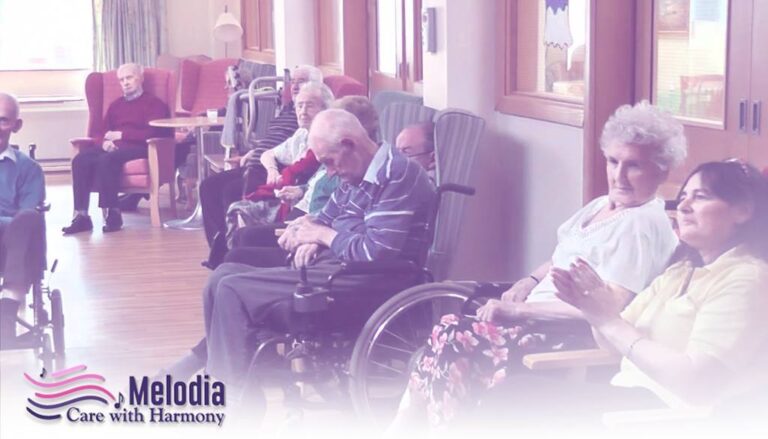Hospice Music Therapy In Alameda City, California
It’s practically impossible to find someone who does not enjoy music in some capacity. Music therapy’s therapeutic effects are not contingent upon the patient’s knowledge of music composition or ability to play an instrument. Music has an innate tendency to reawaken happy memories and emotional events from our past, thereby relaxing and boosting patients’ moods.
Music Therapy: What Is It?

Due to natural therapeutic benefits of music therapy, demand for it in hospice and palliative care has been increasing rather quickly. It makes use of clinically validated musical interventions and music’s inherent mood-lifting capabilities to assist patients in improving their overall well-being. Music therapy is not reserved for individuals receiving hospice or palliative care. Individuals of diverse ages, ethnic origins, socioeconomic status and talents can benefit from the therapeutic effects.
What Is Music Therapy's Purpose In Hospice Care?
The objectives of music therapy in hospice care are dependent on the purposes specified for each patient. A patient’s goals may include the following:
- Support emotionally, anxiety reduction, life evaluation and mood elevation
- Efforts to alleviate loneliness and isolation and to provide social assistance
- Relaxation and comfort, passive listening that may be augmented with guided imagery, all of which assist patients in remaining more attentive and present.
- Physical assistance, pain and symptom management assistance and relaxing individuals who may be restless or agitated
In hospice, music therapy is unique in such a manner that it can draw on the patient’s culture, religious beliefs and beloved experiences to create a highly personal and meaningful healing experience. In this way, music therapy fosters an environment conducive to healing and emotional restoration tailored to patient’s unique needs. While every hospice music therapy program will vary in number of ways, the majority of music therapy sessions at an end-of-life context will involve a number of the same therapeutic activities and techniques.
Hospice Music Therapy's Emotional, Spiritual & Social Benefits

Music is an art form that has the power to transcend race, creed and culture and have a profound spiritual effect on humanity. By utilizing these intrinsic qualities of music, hospice music therapy fosters the following on an emotional, spiritual and social level:
Increased Self Esteem

Patients’ self-esteem improves significantly as they continue to have pleasant social contact with the music therapist, acquiring new musical skills and restoring lost motor skills. Positivity about one’s self-image and self-worth significantly enhances patients’ overall well-being and fosters a more optimistic attitude on the end-of-life journey.
Increased Engagement With Others

Music enables patients to create ties with others who share their passion for a particular classic piece, timeless performer or musical style. These social encounters, facilitated by a shared love in music, enable patients who may not seek social engagement regularly to seek interaction and camaraderie with others.
Introspection & Reassessment Of One's Life

Music provides a secure area for patients to express their emotions and contemplate the path ahead on their end-of-life journey. Patients begin the spiritual healing process during these periods of self-reflection, allowing for the healing of old spiritual wounds and supporting the rebuilding and repair of relationships with family, friends and loved ones.
Hospice Music Therapy's Physical Benefits
While music therapy can be an effective tool for emotional, spiritual and social rehabilitation, it also has various physical benefits. Music therapy benefits hospice patients in the following ways:
Enhancement Of Relaxation

Music therapy is a highly effective method of relaxing. Music has been demonstrated to produce a deeper level of restorative relaxation when used with relaxation activities. Over time, skilled music therapists can narrow in on the types of music the patient responds best to and establish the optimal setting for relaxation.
Increased Ability To Communicate & Speak

Many oral motor abilities shared by speech and singing include breath control, voice intensity and articulation. Singing-based music therapy sessions might help patients rehabilitate motor skills that their sickness may have harmed.
Enhancement Of Motor Coordination

Instruments aid in developing precise physical motions such as plucking strings on a guitar or positioning fingers on the keys of a piano. Over time, these same physical activities can assist patients in regaining lost muscular control and improving general hand-eye coordination.
What Are The Responsibilities Of Our Music Therapists?
Our music therapists clinically use musical treatments to improve quality of life for patients. At Melodia Hospice Care a board certified music therapist (MT-BC) listens, plays, writes and records music. These programs are designed to address the individual’s and family’s social, emotional, physical, spiritual and cognitive needs. Music therapy appears to be suitable for all persons, both physically and emotionally. It has been demonstrated to increase heart rate, decrease anxiety, stimulate the brain and enhance learning.
The following are some of the interventions that our therapists may use:
- Songwriting,
- Improvisation
- Imagery and music analysis
- Singing & Instrument playing
- Relaxation techniques are all included.
What Is Music Therapy & How Does It Work?

Music therapists have a thorough understanding of how music can favorably affect a patient’s emotional well-being. Music therapists begin by determining the appropriateness of music therapy for a patient. Music therapists assess a patient’s unique therapy needs by combining their diverse musical knowledge and abilities. They create a customized plan to assist their patients in achieving relaxation and comfort.
Which Music Therapy Techniques Are Used?

Music therapists who deal with hospice and palliative care patients employ a variety of therapy strategies, including the following:
- Singing & Songwriting
- Music and guided imagery
- Analyses of lyrics
- Legacy and life-reviewing initiatives
- Instruments de musique
Who Is Suitable For Music Therapy?

Music therapists have experience evaluating individuals who may benefit from music therapy. Not all patients desire music therapy. Patients who may benefit the most from the treatment may require additional assistance in one of the following areas:
- Socioeconomic (isolation and loneliness)
- Psychological (depression and anxiety)
- Physique (pain and symptom management)
- Mental faculties (disorientation and confusion)
Promoting Relaxation & Peace

Once a board-certified music therapist has evaluated the patient and recommended music therapy as a good fit, the patient and family can begin to enjoy the myriad benefits music therapy has to offer. At Melodia Care Hospice, music therapy enables our patients to experience moments of joy and calm, as well as recall happy memories from their lives.
A Chance To Express One's Emotions & Recollections

Sessions of music therapy can be an extremely successful and enjoyable approach to speak to a loved one while sharing feelings and memories. This type of communication is extremely relevant when communicating with loved ones who suffer from memory loss.
“Music has the ability to bring us out of melancholy or move us to tears; it is a tonic, an orange juice for the ears. However, for many of my neurological patients, music may allow access to movement, speech and life even when no treatment can. Music is not a luxury for them, but a necessity.”
Hospice Music Therapy
Often, the hospice’s patients come from a diverse range of social, ethnic, religious and familial origins. Each patient comes as an individual with strengths and needs that transcend a diagnosis or set of symptoms. The music therapist evaluates the needs of the patient and of the family by collecting familial, medical, musical and other history, collecting information from collateral sources, meeting patients, monitoring patients and talking to families. Ideally, the music therapist creates, in partnership with the patient and hospice team, treatment goals and the most effective manner of achieving them.
Music therapists in hospice care are particularly concerned with psychosocial difficulties, as well as spiritual and physical requirements. Even in the absence of verbal communication, music therapy can help alleviate feelings of isolation and provide a sense of familiarity and comfort. It can assist someone in maintaining a sense of control over the majority of musical parts of the session through decision-making. Music’s associations and sentiments can aid in recollection and life assessment. Music has the ability to connect people to their history, faith and psyche. It has the ability to contact a person on a profound and extremely individual level, while yet transcending differences and arousing a sense of universality.
How Is Music Therapy Supportive?

Music therapy has been demonstrated to greatly improve the quality of life for hospice patients, their families and caregivers. Music provides solace and consolation, improves physical and emotional well-being and may aid in the following:
- Control discomfort and anguish
- Eliminate anxiety and depression
- Reduce respiratory discomfort
- Consolidate coping abilities
- Assist with spiritual and bereavement needs
- Improve the memorial experience
- Patients and families may seek this therapy through any Melodia Care Hospice staff member, including the nurse, social worker, chaplain, home health aide, or volunteer or by contacting Melodia Care Hospice directly.
It may be provided at your home or a hospital by Melodia Care Hospice. Private sessions are available, as well as sessions that involve supportive care for family members and caregivers.
You can reach us at any time by contacting us through our 24/7 online customer support chat or by calling 1-888 635-6347 (MELODI-7) & Melodia Care Hospice.
